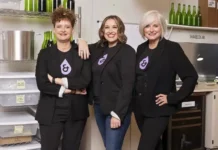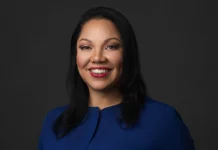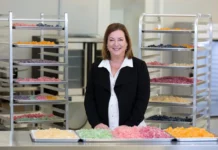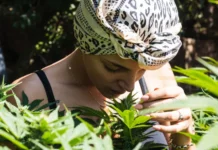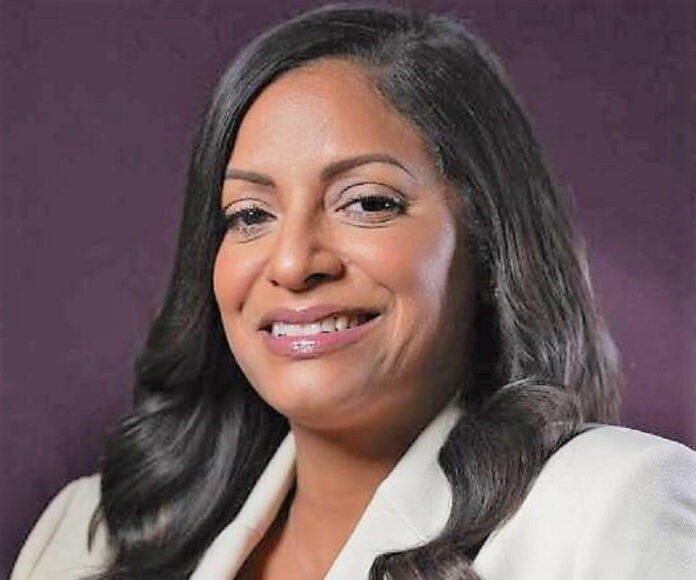
Nurys Camargo is a member of the Massachusetts Cannabis Control Commission, which is the regulatory body for the state’s cannabis industry. It’s a busy time for the commission — it has a new chair, Shannon O’Brien, and orders to implement a new cannabis equity law. Nurys Camargo joined Morning Edition co-host Paris Alston to talk about her work.
Nurys Camargo: I think we’re on track, it’s a good time. And I’m excited because we will now open our regs whether at the end of the year or the beginning of next year. But this new law has allowed us to go back and start working on some stuff that we should have, could have, done before. And we have the opportunity to do it now. We need to demystify a little bit of what this industry is in terms of educating and providing more public awareness around public safety and public health. But also, you know, what is it doing with the economy? It’s bringing jobs. It’s bringing tax revenues to Massachusetts. I’m excited. It’s exciting to be a commissioner at this time.
Paris Alston: And there’s been so much growth in this industry in such a short window of time since cannabis was legalized here in the commonwealth. Do you know what the current demographic breakdown of the state’s license holders are? Is it mostly white? Is it mostly men? Or is there a significant percentage of people who have been disproportionately affected by those laws?
Nurys Camargo: As of now, what I can tell you is that we have about 434 licenses that are open that have commenced operation throughout the state. We also have about 98 medical facilities, or MTCs [medical marijuana treatment centers], as we call them, throughout the state. In terms of agents that are in the industry who work in the industry, we have about 63 percent male and about 36 percent female who work, who are registered agents. And I think we’re at about 70 percent white male agents who work in the industry.
We’re in our third cohort of our social equity program. And I’ll tell you that in total, that universe is about a 1,000 people throughout the commonwealth who have been disproportionately impacted by the failed war on drugs. When it comes to Black and brown communities or BIPOC communities, the numbers are not there. I would like to see higher numbers. This is a cash-heavy and compliance-heavy industry. You don’t just get in here, you need some access.
You need to be able to get a host community agreement, which is a big hurdle. There are still cities and towns that have not figured it out when it comes to community gatherings and meetings. I mean, you need a lawyer, you need an accountant. Some folks need consultants, some folks need lobbyists. But then you have some towns like Northampton and Holyoke and Somerville and Cambridge and Boston who are doing some stuff to allow equity participants to move forward in this process. It is difficult. I would love to see the numbers move when it comes to folks who have been disproportionately impacted by the war on drugs, because, you know, this industry has so many wrongs to rewrite.
Alston: The equity provisions were written into the law when it was first enacted. Looking at the social consumption sites, is that something that could make it easier for someone to enter this market without having to go through all of the licensing for opening their own business?
Nurys Camargo: That is going to be an interesting one. You know, we’re going to see. I can’t speak to social consumption yet because we don’t have it in Massachusetts. Folks are excited. There’s about 122 economic empowerment applicants. There’s about 17 maybe economic empowerment licensees. There’s 22 social equity participants who are now licensees. So there’s folks within the universe who have access to this license. However, we still have to figure out what does it look like? Do we keep a pilot project in Massachusetts?
You know, folks think about cafes. And I want to start by saying that it’s not just about cafes. There’s more places that we can possibly create. There are one-day licenses, there are event licenses. I think about the yoga studio, right? You know, cannabis is a culture. I think people forget about that. It is a business, but it’s lived longer than a lot of us who are listening today. There’s other places who do have social consumption, so we may be a little behind, but I think we’ll be able to catch up.
Alston: Chair Shannon O’Brien just recently started in her new role at the commission, filling the seat that was vacated by Steve Hoffman earlier this year. So yesterday we heard from former commissioner and longtime drug policy activist Shaleen Title, who served in the commission from 2017 to 2020. And during that time, she and Hoffman were the only two members of the commission who didn’t come from a government background, which she says allowed them to ask questions and explain things in ways that the public might better understand. Here’s a little bit of what she said:
“You had a couple of leaders who could ask, hey, why are we doing it this way? Or you could explain it to the public the way that non-government people can understand. I think that made a big difference. I do think it’s important to continue to ask questions and really to put pressure on the commission, to keep being transparent, to keep meeting with members of the public and making sure that we can all influence how this new industry rolls out.”
Alston: So hearing that and talking with you now raises a two-part question for me. One: What is your vision for bridging that gap? But also, why hasn’t the commission tapped, say, someone who was formerly incarcerated on marijuana drug charges or someone who’s working in the industry now to be part of it?
Nurys Camargo: I love it. First of all, I want to thank former Commissioner Shaleen Title for all the work that she’s done past and present. But I agree with her in the sense of continuing to ask questions, putting pressure. I was just at the Freedom Rally this weekend and I met tons of people, gave my card, I gave my email. I said, if I’m not doing my job, tell me. This is a public servant role. We are here to serve the commonwealth and the people. So for me, as someone who has a background in community organizing, political organizing, nonprofit leadership, corporate, and in the criminal justice system, I think I’ve been able to sort of walk all those different hallways. To say the least, I understand that we do have to ask questions. If you read our regs, it can get complicated. So I think that us being able to speak the same language folks are speaking, being able to help people understand what this industry is and what it’s not, I think it’s part of our job.
I’ve been saying this vocally and publicly since I started: I’m a pipeline builder. I created an organization called Chica Project for young women of color to be in these seats. I’ve been recruiting people. If you want to be a cannabis control commissioner, please reach out to me. I will give you some insight, some background, on what this job is. What does it really look like? What are the resources you need? What are the tools that you need? Because when you’re in this seat — I individually have one vote on this commission. But with three votes, a policy is created which can make or break the industry.
We put in a legislative process where we can now advocate for hot topics. And now we can say, Hey, you know what? I think that social consumption is important, social equity is important, or driving under the influence is. Let’s talk about it so that we’re not out there just advocating on our own, but at least three of us have a united front on the commission in terms of of what’s important.

